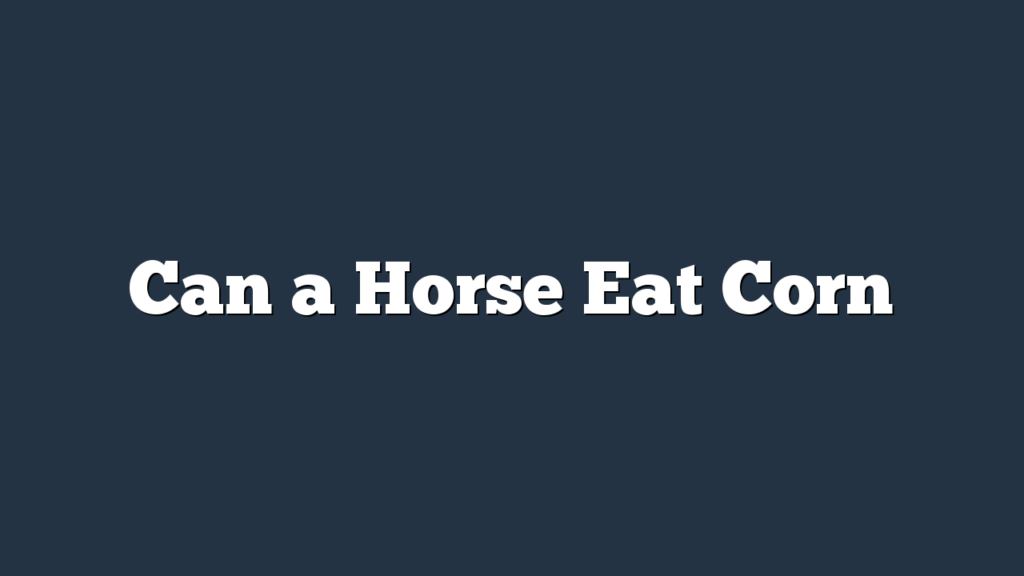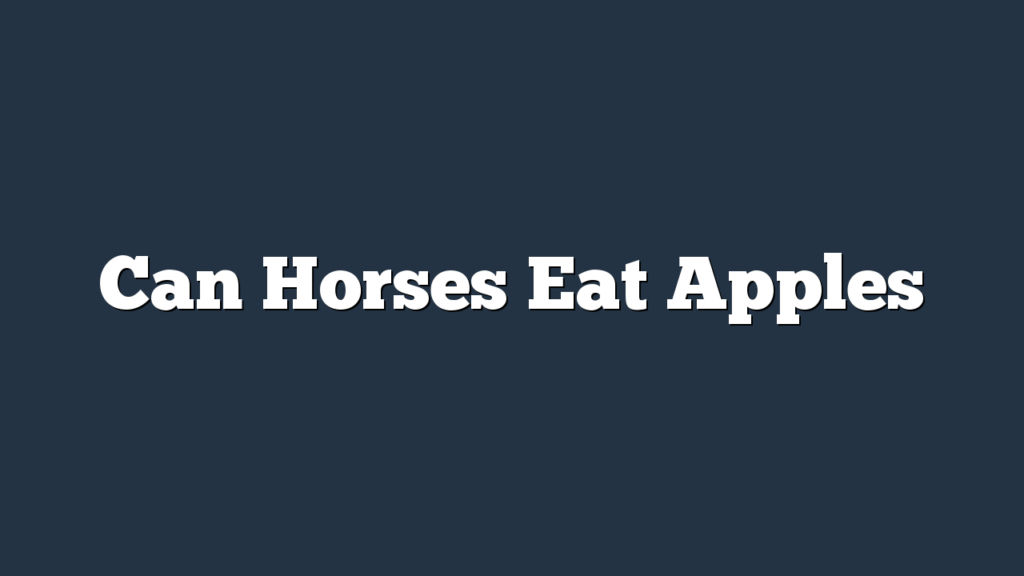Did you know that horses can enjoy the benefits of eating pumpkin? Not only is it a tasty treat, but pumpkin also provides several nutritional benefits for your equine friend. In this article, we will explore the safe amounts of pumpkin for horses, how to prepare and serve it, and any potential risks or considerations.
So, if you’re wondering whether or not to incorporate pumpkin into your horse’s diet, read on to find out all you need to know.
Nutritional Benefits of Pumpkin for Horses
Pumpkins provide a range of nutritional benefits for horses, making them a valuable addition to their diet. One of the key advantages of feeding pumpkins to horses is their natural deworming properties. Pumpkin seeds contain an amino acid called cucurbitacin, which acts as a natural dewormer by paralyzing and eliminating intestinal parasites. Including pumpkin in your horse’s diet can help maintain their overall health and prevent worm infestations.
In addition to being a natural dewormer, pumpkins are also beneficial for horses’ digestive health. They’re an excellent source of fiber, which aids in maintaining a healthy digestive system. The high fiber content helps regulate bowel movements and prevents constipation in horses. Moreover, the soluble fiber found in pumpkins can promote the growth of beneficial bacteria in the gut, improving digestion and nutrient absorption.
Feeding pumpkins to horses can also help manage weight. As pumpkins are low in calories and high in fiber, they provide a feeling of fullness without adding excess calories to the diet. This makes them an ideal choice for horses that need to maintain a healthy weight or manage conditions such as insulin resistance.
Safe Amounts of Pumpkin for Horses
To ensure the safety of your horse’s diet, it’s important to consider the appropriate amounts of pumpkin to feed them. While pumpkin can be a healthy addition to your horse’s diet, it’s essential to feed it in moderation. Here are some guidelines for safe feeding of pumpkin to maintain your horse’s digestive health:
-
Start with small amounts: Introduce pumpkin gradually into your horse’s diet to allow their digestive system to adjust. Begin with a few tablespoons and gradually increase the amount over time.
-
Monitor for any adverse reactions: Keep an eye on your horse for any signs of digestive upset, such as diarrhea or colic. If you notice any symptoms, reduce or eliminate pumpkin from their diet.
-
Balance with other feed: Pumpkin shouldn’t replace the essential nutrients provided by regular feed. It should be offered as a supplement or treat, not as a replacement for their regular diet.
-
Consult your veterinarian: It’s always a good idea to consult with your veterinarian before making any significant changes to your horse’s diet. They can provide personalized advice based on your horse’s specific needs.
Preparing and Serving Pumpkin to Horses
Now let’s talk about how to prepare and serve pumpkin to your horses.
First off, it’s important to note the benefits of pumpkin for horses, such as improved digestion and a boost in immune function.
When it comes to portion size, it’s crucial to provide the proper amount to avoid any potential digestive issues.
Benefits of Pumpkin for Horses
If you’re wondering how to prepare and serve pumpkin to your horse, it’s important to understand the benefits it can provide. Pumpkin can be a valuable addition to your horse’s diet, offering a range of advantages.
Here are some benefits of pumpkin for horses:
-
Nutritional boost: Pumpkin is packed with essential vitamins and minerals, including vitamin A, vitamin C, and potassium. These nutrients support your horse’s overall health and immune system.
-
Digestive aid: The fiber content in pumpkin can help regulate your horse’s digestive system, reducing the risk of colic and constipation.
-
Weight management: Pumpkin is low in calories but high in fiber, making it a great option for horses that need to lose weight or maintain a healthy weight.
-
Joint health: Pumpkin contains antioxidants that can help reduce inflammation and promote joint health in horses.
To serve pumpkin to your horse, you can try incorporating it into their feed or making homemade pumpkin treats using pumpkin recipes specifically designed for horses. Alternatively, you can also find pumpkin supplements available in stores. Remember to introduce pumpkin gradually into your horse’s diet and always consult with your veterinarian before making any changes.
Proper Portion Size
When feeding your horse pumpkin, it’s important to consider the proper portion size. Portion control plays a vital role in maintaining your horse’s digestive health.
While pumpkin can be a healthy addition to your horse’s diet, it should be given in moderation. Too much pumpkin can lead to digestive upset and may cause discomfort for your horse. The recommended portion size for horses is around 1-2 cups of cooked, pureed pumpkin per day.
It’s crucial to introduce pumpkin gradually into your horse’s diet to avoid any sudden changes in their digestive system. Remember to monitor your horse’s response to the new addition and consult with a veterinarian if you have any concerns about portion sizes or digestive health.
Potential Risks and Considerations
Before feeding pumpkin to your horse, it’s important to be aware of potential risks and considerations. While pumpkin can provide some benefits to horses, there are a few things to keep in mind to ensure their digestive health isn’t compromised.
Here are some potential risks and considerations when feeding pumpkin to your horse:
-
Digestive issues: Horses have sensitive digestive systems, and introducing new foods can sometimes lead to digestive upset. Feeding too much pumpkin or introducing it too quickly can cause diarrhea or colic. It’s important to gradually introduce pumpkin into your horse’s diet and monitor their response.
-
Allergies or sensitivities: Just like humans, horses can have allergies or sensitivities to certain foods. While rare, some horses may have an adverse reaction to pumpkin. Watch for signs of allergic reactions such as hives, itching, or difficulty breathing, and consult with a veterinarian if any concerns arise.
-
Seed and rind concerns: While pumpkin flesh is safe for horses to consume, the seeds and rind can pose a choking hazard or cause digestive blockages. Always remove the seeds and rind before offering pumpkin to your horse.
-
Nutritional balance: While pumpkin can be a healthy addition to your horse’s diet, it shouldn’t replace their regular feed or forage. It’s important to maintain a balanced diet that meets all of your horse’s nutritional needs.
Incorporating Pumpkin Into a Horse’s Diet
To incorporate pumpkin into your horse’s diet, you can gradually introduce it as a nutritious and tasty treat. There are various ways to incorporate pumpkin into your horse’s diet, including using pumpkin recipes and pumpkin supplements.
One way to incorporate pumpkin into your horse’s diet is by making homemade pumpkin treats. You can find numerous pumpkin treat recipes online that are specifically designed for horses. These treats often include ingredients like oats, molasses, and cinnamon, which not only add flavor but also provide additional nutrients. Be sure to follow the recipe instructions carefully and avoid using any ingredients that could be harmful to horses.
Another option is to incorporate pumpkin supplements into your horse’s regular feed. Pumpkin supplements are available in the form of powder or pellets, and they can be easily mixed into your horse’s feed. These supplements are made from dried and ground pumpkin, which retains the nutritional benefits of fresh pumpkin. Pumpkin supplements are a convenient way to add pumpkin to your horse’s diet, especially if you don’t have access to fresh pumpkin or prefer a more consistent dosage.
Remember to start with small amounts of pumpkin and gradually increase the quantity to avoid any digestive upset. Always consult with your veterinarian before making any significant changes to your horse’s diet.
Alternative Treats for Horses
You can try offering your horse a variety of alternative treats to keep their diet interesting and provide additional enrichment. Here are a few options to consider:
-
Horse Friendly Fruits:
Fruits like apples, carrots, and bananas aren’t only tasty but also packed with essential vitamins and minerals for your horse. Just be sure to remove any seeds or pits before feeding them to your equine friend. -
Homemade Horse Treats:
Making your own horse treats can be a fun and rewarding activity. You can mix ingredients like oats, molasses, and grated carrots to create delicious treats that your horse will love. Plus, you have the advantage of knowing exactly what goes into them. -
Herbal Treats:
Some herbs are safe and beneficial for horses. Mint, chamomile, and rosemary are just a few examples. You can offer these herbs as treats or even add them to your horse’s feed for added flavor. -
Vegetable Treats:
In addition to carrots, other vegetables like sweet potatoes and squash can be a tasty and nutritious treat for your horse. Just make sure to cook them thoroughly before feeding.
Frequently Asked Questions
Can Horses Eat Pumpkin Seeds?
Yes, horses can eat pumpkin seeds. Pumpkin seeds are rich in nutrients like protein, fiber, and essential fatty acids. Including them in your horse’s diet can provide potential benefits such as improved digestion and a healthier coat.
Is It Safe to Feed Horses Raw Pumpkin?
Feeding horses raw pumpkin can provide nutritional benefits like vitamins and fiber. However, there are potential risks, such as digestive upset or choking hazards. It’s important to introduce pumpkin gradually and monitor your horse’s response.
Can Pumpkin Be Given to Horses With Certain Health Conditions?
If your horse has insulin resistance or digestive issues, it’s important to consult with a veterinarian before feeding them pumpkin. Pumpkin can be beneficial for some horses, but it may not be suitable for those with specific health conditions.
How Often Should Pumpkin Be Incorporated Into a Horse’s Diet?
Incorporate pumpkin into your horse’s diet for a source of fiber. Feed it a few times a week to maintain a balanced diet and promote healthy digestion.
Are There Any Alternative Treats for Horses That Are Similar to Pumpkin in Terms of Nutritional Benefits?
Looking for alternative horse treats that offer similar nutritional benefits as pumpkin? There are several options you can try, such as carrots, sweet potatoes, and apples. These treats are healthy and tasty for your equine friend.
Conclusion
In conclusion, horses can safely eat pumpkin as it offers various nutritional benefits. However, it’s important to feed them pumpkin in moderation and avoid any additives or sweeteners.
Pumpkin can be prepared and served to horses in different ways, such as pureed or chopped. While there may be potential risks and considerations, incorporating pumpkin into a horse’s diet can be a healthy and enjoyable option.
Alternatively, there are also other treats available that can be given to horses as a substitute.



